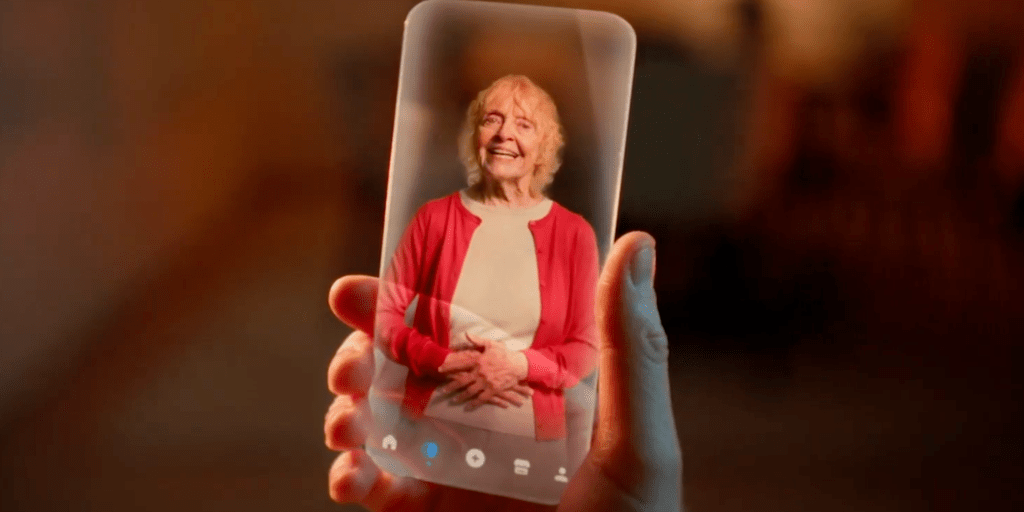An artificial intelligence startup co-founded by a former Disney Channel actor has launched a mobile app allowing users to create interactive digital replicas of deceased loved ones. This development has sparked swift online condemnation and renewed scrutiny of the burgeoning “grief tech” sector.
### 2Wai Launches Interactive Digital Replica App
2Wai, founded by Calum Worthy—known for portraying Dez on the Disney series *Austin & Ally* from 2011 to 2016—and producer Russell Geyser, released its iOS beta on November 11. The app’s flagship feature, called “HoloAvatar,” generates conversational video avatars from as little as three minutes of uploaded footage, audio, and text inputs. This enables real-time chats in over 40 languages.
While marketed as a tool for legacy preservation, the app’s capacity to recreate the deceased has dominated headlines. Many have drawn comparisons to the dystopian 2013 *Black Mirror* episode *Be Right Back*, in which a grieving widow animates her late husband’s digital ghost.
The promotional video, posted by Worthy to his X (formerly Twitter) account with 1.2 million followers, has garnered 22 million views and over 5,800 replies. It depicts a pregnant woman video-calling an AI recreation of her late mother for advice, then fast-forwards to the avatar reading bedtime stories to her newborn—and later counseling her adult grandson, played by Worthy himself.
“What if the loved ones we’ve lost could be part of our future?” the clip asks. “With 2Wai, three minutes can last forever.” Worthy followed up with a statement: “At 2Wai, we’re building a living archive of humanity, one story at a time.”
### Mechanics and Origins
HoloAvatars run on 2Wai’s proprietary FedBrain technology, which processes interactions on-device to ensure privacy and limit responses to user-approved data. This approach aims to reduce AI “hallucinations” — inaccurate or unintended outputs.
The app also supports living users creating avatars for fan engagement or coaching. Worthy’s own digital twin shares behind-the-scenes Disney anecdotes, showcasing a broader use case beyond grief preservation.
Currently free in beta, 2Wai plans to transition to a tiered subscription model. While pricing is undisclosed, it is expected to range between $10 and $20 monthly, based on comparable AI services.
The venture’s origin traces back to the 2023 SAG-AFTRA strikes, where performers protested unauthorized AI likenesses. “Having worked as an actor, writer, and producer for the last 20 years, I experienced firsthand how challenging it is to create a meaningful relationship with fans around the world,” Worthy said at the June launch. “Language barriers, time zones, and budgets limit the ability to truly connect.”
2Wai raised $5 million in pre-seed funding in June from undisclosed investors and is reportedly working with companies like British Telecom and IBM.
### Ethical and Privacy Concerns
Public reaction to 2Wai has been overwhelmingly negative. Many X users have described the app as “nightmare fuel,” “demonic,” and “dystopian,” accusing it of exploiting grief for commercialization.
One viral comment labeled it “one of the most evil, psychotic things I’ve ever seen,” arguing that simulating loss through AI “turns human beings psychotic” by preventing healthy grief processing. Another user called the app “beyond vile,” insisting that videos serve to archive memories, not AI reconstructions.
Legal experts highlight that death bots remain in a legal and ethical gray zone. They can be created without the explicit consent of the deceased, expose deeply personal data of both the dead and grieving, and raise questions about ownership of the digital avatar and its data.
Current privacy laws protect living individuals but offer little to no post-mortem safeguards, leaving surviving family members vulnerable to commercial exploitation through subscription models and unregulated access to sensitive interviews, voice recordings, and other materials.
While the app includes opt-in requirements and family approvals for deceased avatars, critics question how rigorously these are enforced. “You are preying on the deepest human feelings, looking for ways to leverage them for your profit,” one X user wrote, calling the creators “parasites.”
### Investor and Industry Views
2Wai’s funding reflects cautious optimism within AI companionship, but monetizing grief remains a sensitive and controversial niche. Venture firms have generally shied away from similar startups due to ethical pitfalls. For example, Eternal Digital Assets—a cemetery-AI hybrid—closed last year amid high subscriber churn.
2Wai enters a crowded grief-tech field. HereAfter AI, founded in 2019, builds “Life Story Avatars” from pre-death interviews with an emphasis on consent. StoryFile offers interactive videos created from recorded sessions, used at memorials such as the one for Ed Asner; however, StoryFile filed for Chapter 11 bankruptcy in 2024, owing $4.5 million, and is now reorganizing with improved data safeguards.
Currently, no federal laws specifically govern posthumous digital likenesses. However, California’s AB 1836, signed in September 2024, bans unauthorized AI replicas of deceased performers’ voices or visuals in audiovisual works without the estate’s consent. Penalties for violation include fines up to $10,000 or actual damages.
Lawmakers are considering expanding these protections to non-celebrities, fueled in part by concerns over deepfake technology disrupting elections and personal privacy.
—
The launch of 2Wai raises profound questions about how society handles grief, privacy, and emerging AI technologies. As “grief tech” continues to evolve, legal frameworks and ethical guidelines will be crucial to navigate this complex and emotionally charged frontier.
https://bitcoinethereumnews.com/tech/demonic-ai-app-that-lets-users-talk-to-dead-loved-ones-faces-backlash/
